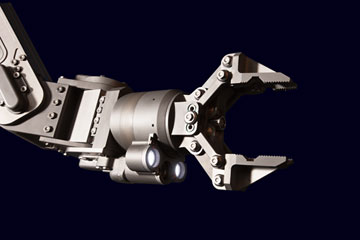
(5 of 6)
Can sensors and software help fighter pilots land safely on storm-splashed aircraft carriers? Can machines speed apple harvests and relieve migrant workers of their bushel baskets? Can devices in the walls at Grandma's house ensure that she takes her medicine, turn off the stove when she forgets to and summon help if she breaks a hip? Yes, yes and yes. What worries many economists, however, is the next step, where robots go from assisting human workers to making them obsolete.
That step, says Singh, will be fraught with difficulty in many fields. Here again, driving is a good example. For years, Google has been spending huge sums (for reasons not entirely clear) to develop self-driving cars. And it has made great progress, racking up more than 300,000 test miles without an accident, according to the company's official blog. Yet the nation's cab drivers need not worry about their jobs. The Google cars may be self-driving, but they require humans at the ready to take over in case of trouble. The cars also fare poorly on snowy streets and can be flummoxed by such routine hazards as cones in the road. "There's still a long road ahead," Google acknowledged last year.
Nor are these issues purely technical. The closer we get to self-driving vehicles or pilotless airplanes or human-free restaurant kitchens, the more questions of law and culture kick in. "Like all machines, some are going to fail, and how are we going to handle that? Who's held responsible when a driverless car kills someone?" Singh asks. And what about emotional acceptance? Self-driving trucks hauling loads of ore back and forth at a remote mining operation in Australia are one thing. (Yes, it's happening.) "It's something else to put your daughter in a self-driving car on a rainy night and send her off to her violin lesson," Singh says.
The Permanently Unemployed
"Creative destruction" is the phrase coined by economist Joseph Schumpeter to describe the irresistible force by which market economies grind weak, fading or inefficient industries into fertilizer for new, stronger ventures. In 1870 it took nearly half of all working Americans to run the nation's farms and feed its people, according to Census data. Today far more food is grown by a tiny fraction of that number: less than 2% of U.S. jobs are in agriculture. Yet the destruction has led to many more jobs than were lost. The lightbulb helped kill the New England whaling industry, but the workers employed thanks to electricity could fill enough ships to darken the seas.
